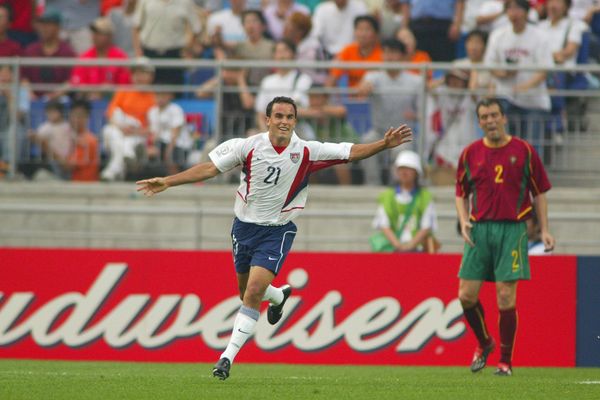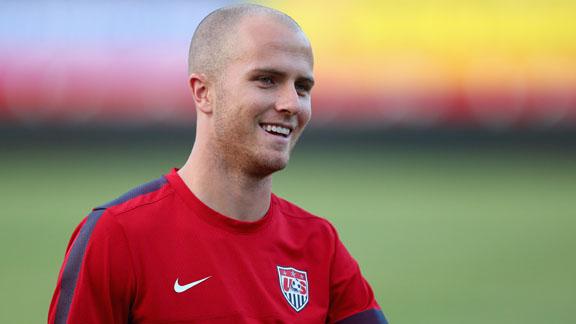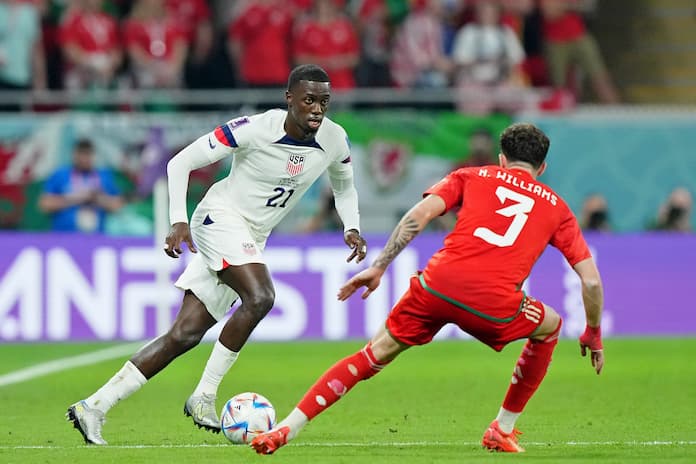It’s not a stretch to say that almost everything soccer connected to the United States faces an uphill battle for respect.
It’s a condition that extends from the national team, to the league, to the players, to the fans of the national team, league, and players, and many other facets and aspects of the American game.
There are a few simple contributing factors: First off, American soccer is young. The US only made it back to the World Cup in 1990, hosted the tournament in 1994, and the current top-flight professional league is an adolescent just starting its freshman year of college.
When MLS was a toddler, there were widened goals, wacky penalty shootouts, and a countdown clock to try to get Americans to care.
For years, the most-watched soccer league in the country (save for the short-lived heyday of the NASL) was MISL – the Major Indoor Soccer League.
MLS was on the brink of extinction just 15 years ago.
American soccer is so, so young. Children now make up the first generation to really grow up with the game. A fan-base for the sport in America was almost nonexistent, so for sure, it’s an uphill battle.
How do you convince Americans to care about MLS en masse? We are used to having the best of everything, especially in sports, and MLS is by no means the best soccer league in the world.
Why watch MLS when the Premier League is readily available on TV? Why watch FC Dallas when you can watch Barcelona and Manchester United in the Champions League? These are all valid arguments.
Soccer is growing in popularity in huge numbers in the US, but outside of local markets where the league is booming – Portland, Seattle, LA, Kansas City, Salt Lake, ext. – it’s more likely to find fans of the European game than the American one at home.
Premier League ratings on NBCSN dwarf MLS ratings on the same channel, and the league’s overall ratings are minuscule with little sign of improvement.
Of course, this is not to diminish the huge strides MLS has made in the last ten years – the league is obviously unrecognizable from the countdown clock days – but there is still a lot of respect to be won.
American players overseas will tell you that if their are competing for the same spot on a team with an equally skilled European, South American, or African player, the American won’t get the spot nine times out of ten.
Americans are taboo across the world game. They come with a stigma and a snicker that says, “Oh, America don’t play football.”
That applies to the national team in many respects too. While the USMNT are more respected in many ways than American players and MLS, there are still many in the United States who adopt other countries to support because they think it’s not worth it to support their own national team.
Is there a quick fix for all of this? No. Over time, as MLS improves, things will get even better than they are right now – and there aren’t many who are at all dissatisfied with how well MLS is doing as is.
Long term, soccer is a slam-dunk in America. MLS will be a world power at some point in the next few decades. Maybe sooner.
But is there a quick fix? Short-term, something that can boost the image and profile of not only MLS, but American soccer everywhere?
Absolutely. The World Cup. Everyone watches the World Cup.
It’s the one soccer event that goes mainstream in America. Talk-shows, news programs, everyone wants a part of it. The patriotism, the drama, and the spectacle draw people in here, where ratings for the 2010 World Cup Final eclipsed ratings from that year’s World Series, NBA Finals, and Stanley Cup Finals.
In 2014, the event is going to be bigger than ever in the USA, and for the first time, many key Americans will be representing MLS.
There figures to be eleven MLS players on the USA’s World Cup squad, and at least five, possibly six, will start in Natal against Ghana. The team’s three highest-profile outfield players – Michael Bradley, Clint Dempsey, and Landon Donovan – are all MLS players.
Of course, two of those stars – Dempsey and Bradley – came back to MLS from top European clubs, Tottenham and Roma respectively.
If Dempsey and Bradley flop, MLS will stand out as the single biggest reason why.
But if the whole country tunes in to see those players and someone like Seattle’s Brad Evans or Kansas City’s Graham Zusi shut down Cristiano Ronaldo and Portugal, or Mesut Ozil and Germany, MLS will have immediately won some modicum of respect.
Those international stars being beat by our guys who play in our backyards? Now that’s something worth getting behind.
After the 2002 World Cup in South Korea and Japan – a tournament that will in no way compare to the size of the 2014 edition in the US – MLS turned their failing fortunes around.
One of the men who kept the league afloat, soccer and sports visionary Lamar Hunt who the US Open Cup trophy is named for, sat quietly crying in the stands of the Suwon Stadium as the US went 3-0 on Portugal in their first half of their first group game of the tournament.
He knew what that result and that World Cup meant for US soccer. When you represent the Stars and Stripes at a major tournament, you’re not just playing for your country now, but you’re directly impacting the future of soccer in the United States.
If things don’t go well this summer for the USA and MLS’ players – who will also be with teams like England and Brazil – it will be disappointing.
But if things do go well, MLS and US Soccer may take another giant leap forward in the beautiful game.
Tune in to the MLS this weekend with Seattle Sounders taking on Toronto FC live on NBCSN. You can also follow the other games on MLS Live or MLSsoccer.com’s MatchCenter.
Add Sportslens to your Google News Feed!








